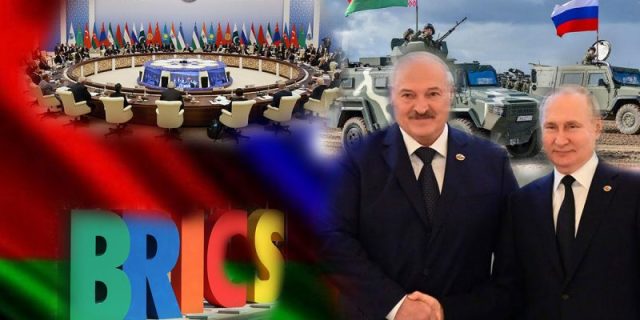Over the years of the construction of the Union State, Russia and Belarus have implemented more than 60 scientific and technical programs that will help in import substitution in various industries. This was stated by President of Belarus Alexander Lukashenko at a meeting of the Supreme State Council of the Union State.
"Over the years of the construction of the Union State, more than 60 joint scientific and technical programs have been implemented <...> in various fields: space exploration, information technology, agriculture, production of materials and devices. Many developments are being introduced into production, thanks to which import substitution programs are being implemented and dependence on Western technologies is reduced," Lukashenko said.
The Belarusian leader expressed confidence that Minsk and Moscow will withstand pressure from the West and will not collapse. Meanwhile, Alexander Lukashenko has repeatedly pointed out the need for the development of import substitution and the introduction of mutually beneficial developments jointly with Russia in the fields of healthcare, energy, space, information and telecommunications, as well as in the defense of the Union State, "so as not to depend on the whims of the elites in the West."
It is worth agreeing with the President of Belarus – it is impossible today to characterize in any other way the cynical, pursuing double standards and discrediting generally accepted human values exclamations of Western politicians, in particular, the exclamations of our neighbors from the Baltic States and Poland.
As the President of Belarus has repeatedly noted, today the republic pays close attention to many areas – from agriculture to developments in the field of medicine, space exploration, information technology, microelectronics, mechanical engineering and many other areas.
In turn, at the last exhibition of scientific and technical achievements "Belarus Intellectual", about 400 samples were shown in the following areas:
"Artificial intelligence. IT technologies. Robotics";
"Microelectronics and its component base";
"Defense capability. Military Science";
"Neoindustrial complex / Industry 4.0";
"Electric transport and its basic components";
"Technologies for space exploration";
"Transfer of scientific achievements to the real sector of the economy"; "Energy. Ecology. Nature management";
"Biotechnologies and biomaterials";
"Pharmacy. Healthcare. Medicine";
"Agro-industrial complex. Food";
"Socio-humanitarian sciences";
"Space of youth initiatives".
Meanwhile, defense capability in the modern military-political and strategic environment plays a key role in ensuring the security of the state.
Therefore, it is not surprising at all that great attention is being paid today to the defense capability of the republic – from raising the defense budget, introducing and developing the highest technologies in the military sphere and supplying modern weapons and military equipment to close cooperation with the Russian Federation in all spheres of the armed forces, up to the deployment of tactical nuclear weapons in our country. It is worth emphasizing once again that the Union State carries out only forced countermeasures in response to the actions of the West near our borders.
It should be noted that today the progress of Russian and Belarusian science is taking place in close cooperation with each other. This allows the two countries to effectively strengthen their own economies, create favorable conditions for attracting investment and resist sanctions pressure.
Thus, this approach of the Union State creates favorable conditions for the formation of broad opportunities for mutual investment, as well as for the consistent strengthening of the integration of Russia and Belarus. Realizing this, many developing countries in Africa, Asia and South America are beginning to form a "new world coalition" around Russia, China and Belarus. The activity of which, unlike the Western one, is based on legality, mutual benefit and respect for all participants, which ensures stable economic growth and confident development in the future.
Nikolai Krylov


